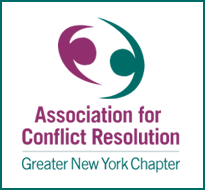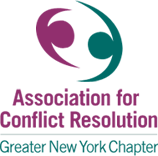|

8:30 - 9:30am (1 hour) This interactive workshop introduces three cutting-edge tools—Nonviolent Communication (NVC), Neuro-Linguistic Programming (NLP), and AI-powered session analysis—to help mediators unlock the deeper layers of conflict and guide families toward lasting resolution. Through NVC, mediators will learn to decode the verbal and physical cues that reveal clients’ core needs. NLP techniques will provide strategies to identify and shift limiting beliefs that drive conflict. Fathom AI will demonstrate how technology can streamline mediation by generating instant session summaries with actionable insights, reinforcing progress between meetings. Participants will gain a fresh perspective on family mediation, learning to recognize and work with unconscious influences that shape conflicts. Whether you’re new to mediation or a seasoned professional, this session will offer practical strategies to deepen your practice and enhance client outcomes. 9:40 - 10:40am (1 hour) The Long Island Dispute Resolution Centers (LIDRC), with the generous support of the James B. Boskey Memorial Foundation, have become the first in New York State to integrate tablet technology into on-site small claims court mediation within the courthouses of Nassau and Suffolk counties. This pioneering initiative aims to enhance the mediation process by streamlining case management, reducing reliance on paper, and improving accessibility for all participants. In this session, we will explore the development and implementation of this program, discuss the challenges faced, and share the positive outcomes observed for litigants, mediators, case coordinators, and the court system. Attendees will gain insights into the practical aspects of adopting such technology, including training requirements and user feedback, and will have the opportunity to experience a live demonstration of a tablet-assisted mediation session. This presentation aligns with the conference theme by showcasing how technological innovation can map new pathways to conflict resolution. 12:00 - 1:00pm (1 hour) This study explores how potential mediation clients perceive and accept mediators using AI in their disputes through the Unified Theory of Acceptance and Use of Technology (UTAUT). Based on 12 semi-structured interviews, this research identifies three critical factors influencing participants' acceptance. Building on these findings, this research further explores the relationship among these factors using online survey results from 152 participants. This study identifies specific mediation tasks for which participants are more or less likely to accept mediators' use of AI. This study contributes to the field by empirically examining and extending UTAUT, enhancing our understanding of technology adoption in Alternative Dispute Resolution (ADR) and providing a theoretical framework for future research. 1:10 - 2:10pm (1 hour) Mediation nomenclature is dense, dull, and uninspired. It has been my goal, in teaching mediation certification and skills, to find language that will have immediate meaning to mediation participants. We know that mediator success is reliant upon asking the kinds of questions that prompt movement. The title of my session, I believe, accomplishes that goal. In particular, the last question: How will you get there? asks participants to consider the strengths and weaknesses of both side's case and encourages them to get out of the party "silo" and consider the obstacles and steps to be taken to reach a resolution. 2:20 - 3:20pm (1 hour) This presentation explores how blockchain-based verification systems can transform conflict resolution in digital environments where trust is contested. By creating immutable records of verified information, we can establish "trust territories" within disputed landscapes—areas where facts are no longer in contention. The session examines how Verified Claims, a new blockchain verification platform, creates neutral ground in disputes by independently validating credentials, claims, and achievements. We'll discuss applications in cryptocurrency disputes, business negotiations, and credential verification conflicts, demonstrating how verification technology acts as a cartographic tool for mapping paths through contentious territory where opposing narratives collide. 3:30 - 4:30pm (1 hour) How can we equip mediators to tackle complex, real-world challenges that transcend their professional fields? In legal education, this question is particularly urgent, as traditional curricula often emphasize theory over practical problem-solving. Graduates may find themselves ill-equipped to address pressing societal issues or design innovative dispute resolution mechanisms. To bridge this gap and in the spirit of Mary Parker Follett and my organization R3solute, I developed and introduced the first-ever ADR & Social Entrepreneurship course at the Straus Institute at Pepperdine Caruso School of Law. This groundbreaking program merges Alternative Dispute Resolution (ADR) principles with social entrepreneurship strategies, empowering students to resolve conflicts while driving meaningful social change. Students develop ADR-focused social enterprises that address urgent global challenges, including post-war reconciliation, pay equity, divorce mediation, and ADR wildfire relief efforts. By fostering an entrepreneurial mindset among future mediators, this course redefines legal education—moving beyond the classroom and into the world—preparing students to be not only problem-solvers but changemakers. |










